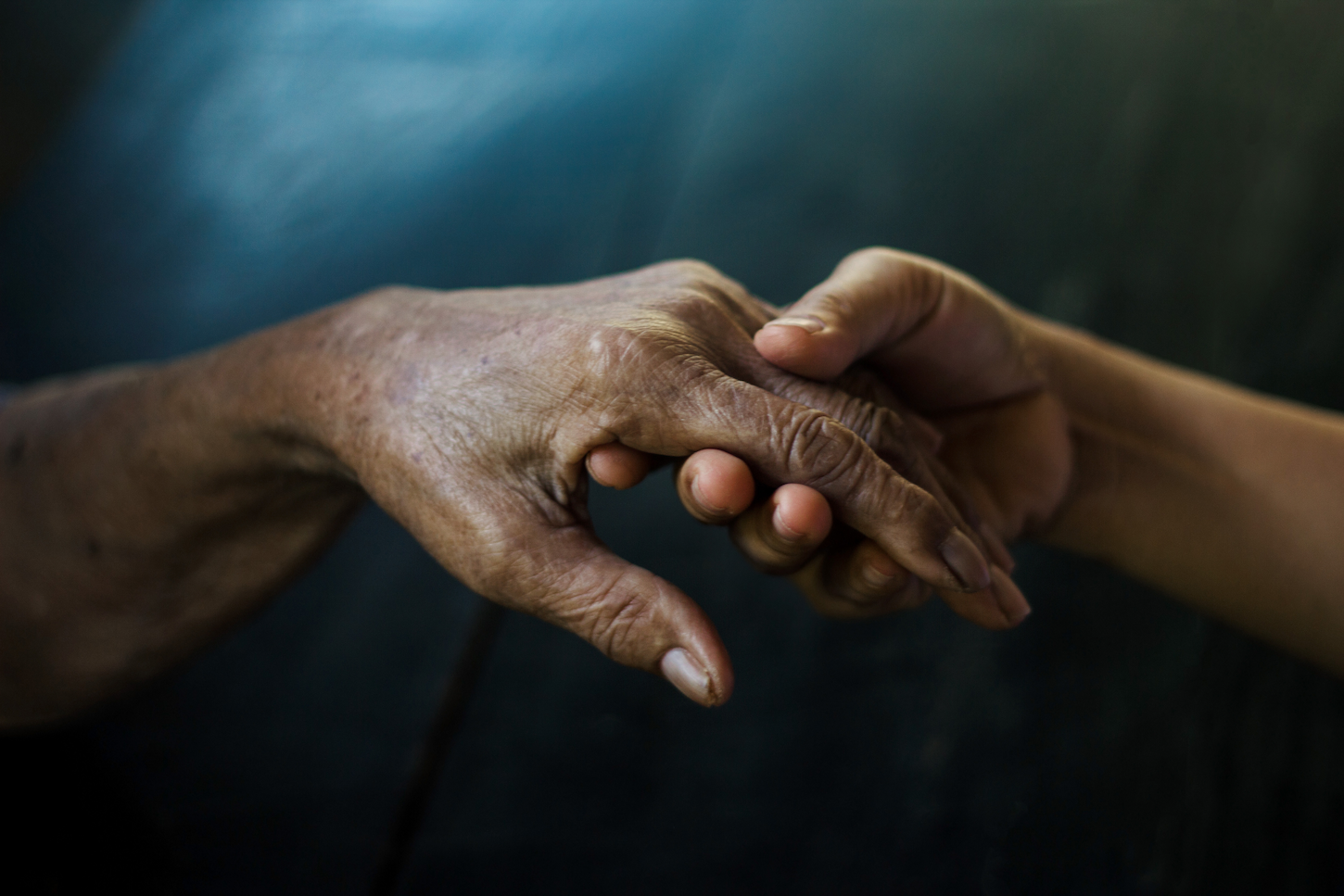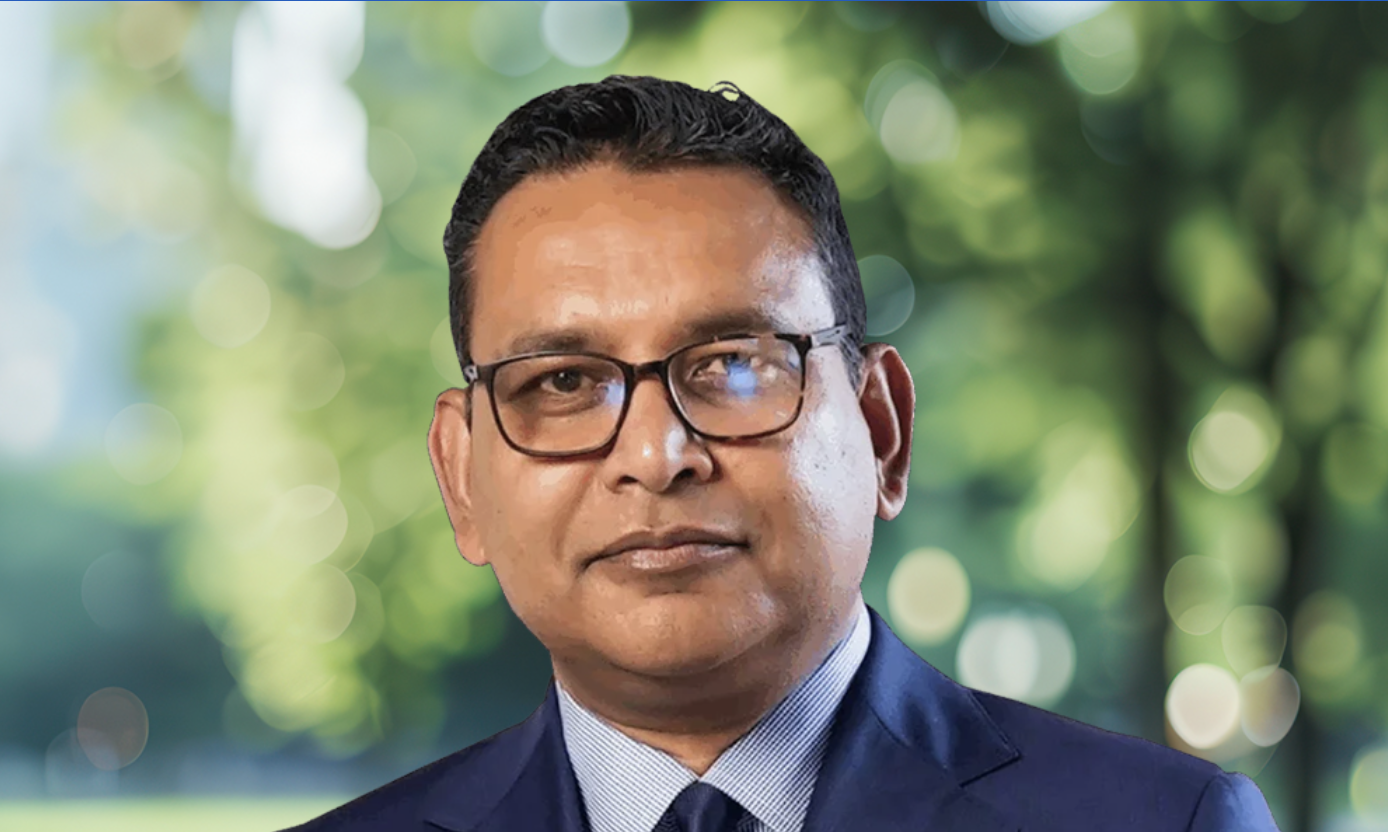Watching his mother fade from dementia, a technologist sees a role for AI: to ease burdens, not replace the human touch that makes care meaningful.
KEY POINTS
- By 2050, 1 in 6 people worldwide will be over 65, how do you want to care for your parents?
- Caring for my mom taught me that grief and love walk hand in hand.
- The future of care is balance: AI as helper, humans as the heart.
- In every burden of care, there’s a chance to choose presence.
Watching the progression of my mother’s dementia was one of the hardest things I have experienced in life.
Of course, there were moments of grace… the moments when her smile would light up her face and somehow the years would drop away and I could see the mother I remembered; or the moments when her eyes flashed with joy when she recognized her grandson. There were the nurses who sang to her, the aides who held her hand. Yes, in the midst of it all, there was love and beauty and much to be grateful for.
But it was also immensely hard.
Dementia means you lose the person you know while they are still in front of you. You lose them slowly, gradually, and that means the beautiful moments are always layered with a profound pain, because they make the contrast between the past and the present so vivid.
I work and think a lot about technology in general and AI in particular. So naturally, as a response to grief, I often wondered: Could AI have detected her decline sooner? Could it have eased the caregiving burden so there was more time to connect, not just cope?
The Weight of Care
Caregiving is love, and I’m profoundly grateful for being able to give my mother this love—but it’s also exhaustion and grief. This is borne out by research, which shows that major depressive symptoms are more prevalent in caregivers than in the general population.
We were incredibly fortunate to have professional support during this difficult time. But even with that support, much of the burden of my mother’s care fell on our family. There were the burdens you could see from the outside—sleepless nights, unending paperwork, material expenses, a family ecosystem stretched beyond breaking point. But the less tangible burden was the greatest of all: the heartbreak of watching her fade while trying to preserve who she was.
Technology can’t take that burden away. Grief is part of human life, and always will be. But technology can help us carry that burden—it can help us find the space for love in the midst of pain.
Where AI Can Help
AI often feels like a futuristic abstraction. But some of its most useful contributions in elder care are quietly practical.
I think of AI-powered wearables, like those with fall detection features, or smart home sensors, as are already beginning to be used in Japan’s homesand elder care programs. Instead of my constant concern about my mother’s safety when she was alone, an alert system could have given me confidence that I would know immediately if I was needed in an emergency.
AI-powered wearables are also being trialed to help in other ways. In a project funded by Google, wearables detect when people with dementia are agitated, and then play music that helps soothe the patient’s mood.
Less visible, but just as powerful, are the systems that work in the background. These are the AI systems that quietly take over the endless stream of documentation, track complex medication schedules, and even help coordinate the logistics of care. By lifting that administrative weight, they give nurses and aides the time and presence to focus on the human side of care.
What Only Humans Can Do
We are creatures of flesh, blood, and feelings. We are connected to others through love and history. We have memories and character traits.
We cannot, in other words, be reduced to something that a machine can care for.
My mother would have benefited from the types of AI-powered care I have described. But a system of elderly care that is powered by AI alone would be a dystopian horror.
Humans need other humans to care for them.
Humans need empathy and love. A human nurse wasn’t simply a pill-delivery system to my mother. A human nurse was a person who sat with her quietly when she sensed it was needed, a person who could make my mother laugh, a person whose simple human presence infused the room with life.
An AI-powered system could play soothing music, and that has its place. But it couldn’t replicate my mother singing an old Bengali song she used to soothe herself.
An AI-powered robot could cook her favorite foods for her. But that doesn’t have the same meaning as her son bringing her potal bhaja, and dal.
I’m a technologist. I’m passionate about the benefits of using AI to transform elder care. But we have to use it with wisdom.
There are essential elements of elder care that only humans can offer—and AI should be used to clear the space for humans to offer it.
Of these elements, the most fundamental is love. We must use AI to help us love better.
A Vision of Balance
It would be a gross dereliction of duty to ignore the enormous potential AI has to improve elder care. And it would be a devastating attack to humanity to leave elder care entirely to AI.
And therefore, as so often, the answer lies in balance—in Aristotle’s golden mean.
AI matters because it can relieve the strain where human energy is most limited: monitoring, administration, logistics. By taking on the ordinary, by automating the routine, AI makes it possible for care to remain human even in the face of growing demand. If we ignore its potential, we condemn families to shoulder impossible burdens and health systems to buckle under the weight.
And humans matter because only humans can love other humans—and love is the basis of all genuine and effective care. So rather than replacing humans with AI, we must use AI to help humans be their best selves.
If I could redesign my mother’s care, I wouldn’t replace nurses and aides with AI-powered devices. Instead, I’d give them tools that eased their exhaustion and freed up more time to be human. I’d give our family relief from constant fear so we could focus on presence and love.
That balance—AI as helper, humans as the heart—feels like the only sustainable path.
Caring Into the Future
By 2050, 1 in 6 people worldwide will be over 65, and without innovation, systems will not be able to cope, leaving elders and families to suffer. Already, we see shortages of trained caregivers, rising costs, and families stretched to breaking point.
It’s a social issue, but it’s also intensely personal. And not just for me—for all of us. Because one day, each of us will rely on other humans in the same way.
So the question is not just: how do you want to care for your parents? It’s also: when the time comes, how do you want to be cared for yourself?
[Photo: Ipopba / Adobe Stock]
Original article @ Psychology Today.
















